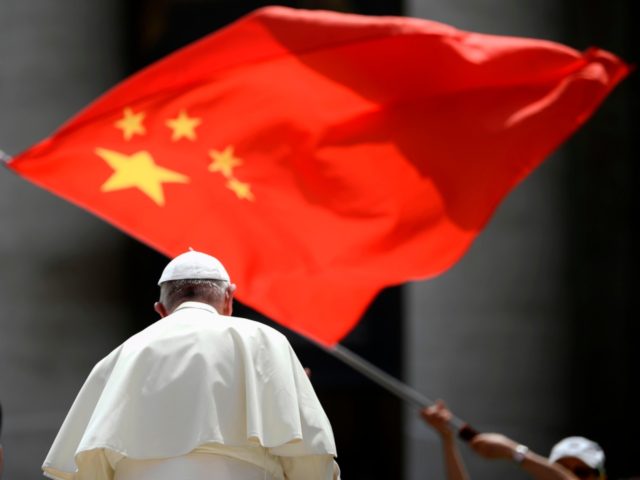ROME — Pope Francis called attention to a series of afflicted areas around the globe in his annual Christmas blessing Wednesday, conspicuously omitting any mention of Hong Kong’s mounting crisis.
Traditionally, on Christmas the pope offers up prayers for troubled regions of the world, remembering those who suffer and invoking God’s peace on them. This year’s address was no different, except that in the long list of hotspots mentioned, the former British colony of Hong Kong was nowhere to be found.
Among the many held up for their suffering, the pope enumerated “the Middle East,” the “beloved Syrian people,” “the Lebanese people,” “Iraq,” “Yemen,” “the whole American continent,” “the beloved Venezuelan people,” “beloved Ukraine,” “the people of Africa,” “the Democratic Republic of the Congo,” “Burkina Faso,” “Mali,” “Niger,” “Nigeria,” along with three separate shout-outs to migrants.
Yet Hong Kong, embroiled over the last six months in an ever more violent conflict between pro-democracy protesters and the Communist China-backed government forces, merited no prayer, no acknowledgment — only silence.
Despite his frequent calls for young people to get out on the streets and “hacer lío” (raise a ruckus), the pope has carefully avoided mentioning the Hong Kong situation, and when pressed in the question, has refused to commit himself.
The most egregious example of this occurred during an in-flight press conference returning from Asia in late November, when the pope dodged questions regarding the Hong Kong protests, insisting that the problem must be “relativized” among other difficult situations occurring around the globe.
“But it’s not just Hong Kong. Think of Chile, think of France — the democratic France with a year of yellow vests — think of Nicaragua, think of the other Latin American countries, Brazil, which is struggling, and also any European country. It’s a generalized thing,” he said.
“There are several issues that have problems and I am not able to evaluate them right now,” he said.
“I would like to go to Beijing. I love China,” he concluded.
The following day, China’s foreign ministry praised the pontiff for his carefully worded reply.
“Following the pope’s statement in which he expressed his desire to visit Beijing, Geng Shuang, the spokesman for the foreign ministry, said that China appreciates his friendship and kindness, and looks with openness toward reciprocal exchanges with the Vatican,” read a tweet sent by the Chinese Embassy in Rome.
Earlier this month, a top Vatican bishop confirmed Pope Francis’ wish to visit Beijing and establish formal diplomatic ties with the country, to which many attribute the pope’s unwillingness to show support to Hong Kong freedom protesters.
“Pope Francis has love and confidence in China and China trusts Pope Francis,” said fellow Argentine Bishop Marcelo Sanchez Sorondo, chancellor of the Pontifical Academy of Sciences, speaking at a conference in Kunming, Southwest China.
“In this dynamic, the next step is to reach [an agreement on establishing] diplomatic relations,” said Sanchez, while also underscoring the pope’s wish to visit China and to host China’s leaders in the Vatican.

COMMENTS
Please let us know if you're having issues with commenting.